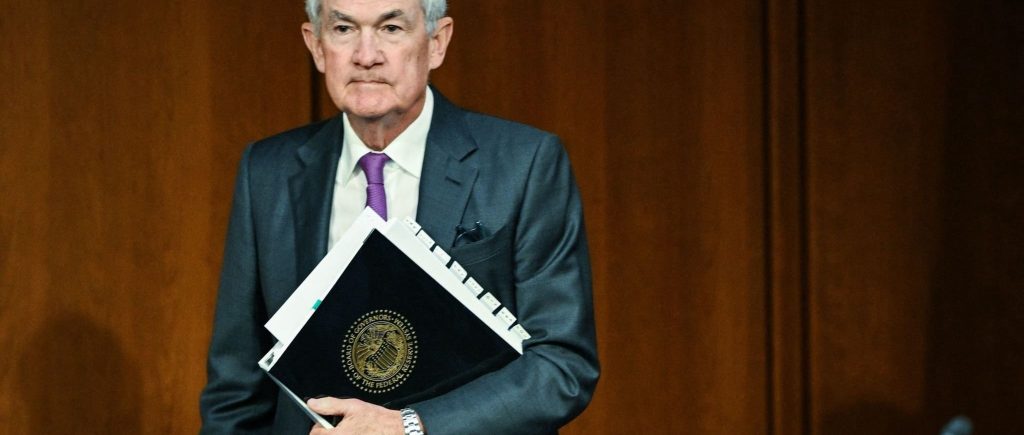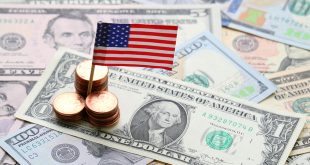A significant shift is underway in the political landscape surrounding the Federal Reserve. While President Donald Trump has historically challenged Federal Reserve Chair Jerome Powell for the central bank’s monetary policy decisions, a long-standing “firewall” of support from Republican lawmakers is now showing signs of degradation. This erosion of traditional checks on executive pressure is becoming increasingly evident, raising questions about the future of the Fed’s treasured independence.
Six years ago, during Trump’s first term, Republican lawmakers often served as a bulwark against the President’s attacks on the Fed. Then-Senator Pat Toomey of Pennsylvania, for instance, publicly expressed gratitude for Powell’s effective management of borrowing costs. However, six months into Trump’s second term, that usual legislative check is visibly eroding. A small but growing contingent of Republicans are now openly comfortable demanding Powell’s ouster, citing frustration over the Fed’s decisions to hold interest rates steady four times so far this year. They are also leveraging concerns over costly renovations at the Fed’s historic headquarters as a point of contention.
“What we don’t want to do is the Fed to be playing politics,” stated Republican Senator Markwayne Mullin of Oklahoma, a close Trump ally who openly believes Powell should step down. Mullin added that “it appears like it is being political right now.” Even Republican Senator Thom Tillis of North Carolina, who has previously defended the Fed’s independence, recently toured the renovation site alongside President Trump, Republican Senate Banking Chair Tim Scott of South Carolina, and other senior White House officials. Tillis commented earlier in the day, “I’m just kind of curious about the due diligence.”
The scrutiny intensified when, on Wednesday, Senator Scott sent a letter directly to Chair Powell, pressing for more information about the central bank’s “lavish” renovations and questioning whether the expenditures aligned with Powell’s past testimony to Congress. This followed the launch of a formal probe by House Republicans into the Fed’s ongoing upgrades, now in their fifth year. Adding a dramatic flourish, Representative Lauren Boebert of Colorado, a hardline House conservative, issued a “criminal referral” to the Department of Justice over Powell’s oversight of the renovations. While such a referral doesn’t legally compel the DOJ to probe anything, it can certainly influence their decision-making process. Senator Scott reiterated his stance after the visit, stating, “I’ll continue pushing the Federal Reserve to increase transparency, rightsize rules and regulations, and avoid politics.”
The U.S. economy that President Trump inherited in his second term is vastly different from the low-interest environment of 2019. Consumer prices notably surged after the pandemic, and the Fed initially seemed slow to diagnose it as inflation that was not merely “transitory” but far more stubborn. Their prescribed solution, starting in late 2022, involved raising interest rates. It was only last year that the Fed began considering dropping those rates. This challenging experience has undoubtedly contributed to some Republican wariness regarding the Fed’s recent management of the U.S. economy.
President Trump is in the midst of a one-sided, often fiery, campaign against the Fed, now with more overt Republican support. He has consistently found ways to raise the stakes against a studiously nonconfrontational Powell. Heightened economic uncertainty, partly attributed to the Trump administration’s tariff regime, has prompted Fed officials to decide it’s best to sit tight on interest rates for the time being. The Fed is expected to make the same decision again at its two-day meeting next week.
However, Chair Powell does have his limits. During the recent tour, Powell notably corrected President Trump about the renovation’s cost, confirming it to be $2.5 billion after Trump asserted it was $3.1 billion by mistakenly including another building renovated five years prior. “It’s not new,” Powell stated firmly. Unexpectedly, President Trump appeared to dial down his criticism of Powell on Friday, perhaps signaling a temporary ceasefire. “We had a very good meeting… I think we had a very good meeting on interest rates,” Trump told reporters, adding he believed Powell was “a good man.” It remains unclear whether or not President Trump will pause his relentless attacks, but if he does, at least some Republicans will breathe a sigh of relief.

 Noor Trends News, Technical Analysis, Educational Tools and Recommendations
Noor Trends News, Technical Analysis, Educational Tools and Recommendations




